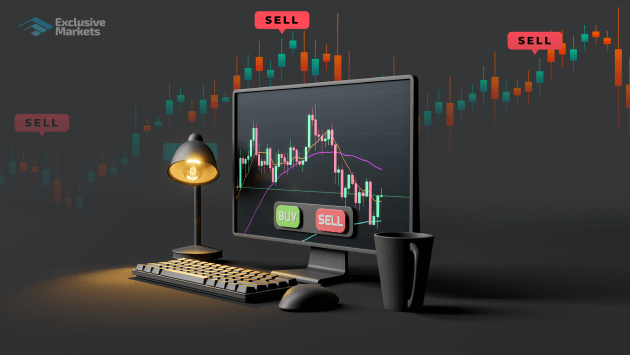The Ultimate Guide to Forex Trading Online 1856999532

Forex trading online has revolutionized the way traders engage with the currency markets. With the advent of technology and the internet, trading has become accessible to anyone from anywhere in the world. For those looking to venture into this dynamic market, understanding the basics is crucial. This article will explore essential aspects of forex trading, including strategies, resources, and tips to enhance your trading journey. Don’t forget to check forex trading online exbroker-turkiye.com for more insights and trading opportunities.
What is Forex Trading?
Forex trading, or foreign exchange trading, involves buying and selling currencies in order to profit from changes in their exchange rates. The forex market is the largest financial market in the world, with a daily trading volume exceeding $6 trillion. Unlike stock markets, the forex market operates 24 hours a day, five days a week, enabling traders to trade at any time that suits them.
The Importance of Currency Pairs
In forex trading, currencies are always traded in pairs, such as EUR/USD (Euro/US Dollar). The first currency in the pair is known as the base currency, while the second is the quote currency. The exchange rate indicates how much of the quote currency is needed to purchase one unit of the base currency. Understanding currency pairs is crucial for any trader, as it helps in determining market trends and making informed trading decisions.
How to Start Trading Forex Online
Starting your forex trading journey involves several key steps:
- Educate Yourself: Before entering the forex market, it’s essential to understand key concepts, terminology, and trading mechanics. There are countless online resources, courses, and tutorials available that can provide foundational knowledge.
- Choose a Trading Platform: Selecting a reliable forex broker and trading platform is crucial. You should look for platforms that offer a user-friendly interface, robust tools, and competitive spreads.
- Create a Trading Account: Once you have selected a broker, you will need to create a trading account. It is advisable to start with a demo account to practice your strategies risk-free.
- Develop a Trading Strategy: A well-defined trading strategy is vital for success. You should determine your risk tolerance, trading style (scalping, day trading, swing trading, etc.), and goals.
- Start Trading: After practicing on a demo account, you can start live trading. Begin with a small investment to minimize risks as you gain experience.
Understanding Forex Market Analysis
Successful forex trading relies heavily on market analysis, which can be categorized into two main types: fundamental analysis and technical analysis.

Fundamental Analysis
This involves analyzing economic indicators, news events, and geopolitical developments that may impact currency values. Key indicators include interest rates, unemployment rates, GDP growth, and inflation. Traders who utilize fundamental analysis often keep a close watch on economic calendars to anticipate market movements.
Technical Analysis
Technical analysis, on the other hand, focuses on price patterns and market trends. Traders use charts and indicators to identify potential entry and exit points. Commonly used tools include moving averages, Relative Strength Index (RSI), and Fibonacci retracement levels. Understanding technical analysis is essential for traders who prefer a systematic approach to their trades.
Risk Management in Forex Trading
Risk management is a critical component of successful forex trading. It involves the implementation of strategies to minimize potential losses while maximizing profits. Here are some key elements of effective risk management:
- Use Stop-Loss Orders: Setting stop-loss orders can protect your investment by automatically closing a trade when it reaches a certain loss level.
- Determine Position Size: Calculate the appropriate position size based on your account balance and risk tolerance. This will help you avoid over-leveraging your trades.
- Diversify Your Portfolio: Diversifying your investments across different currency pairs can reduce overall risk.
- Keep Emotions in Check: Emotional trading can lead to rash decisions. It’s essential to remain disciplined and stick to your trading plan.
Choosing a Reliable Forex Broker
Choosing the right forex broker is a significant decision that can impact your trading success. When selecting a broker, consider the following factors:
- Regulation: Ensure that the broker is regulated by a reputable authority, which adds a layer of security to your trading environment.
- Trading Costs: Compare spreads, commissions, and fees associated with different brokers to find the most cost-effective option.
- Customer Support: Good customer service is essential for addressing any issues that may arise during your trading journey.
- Trading Tools: Look for brokers that provide advanced trading tools, educational resources, and market analysis to enhance your trading experience.
Trading Strategies for Success
Many traders develop their own strategies based on their risk tolerance, market analysis, and trading style. Here are a few popular strategies used by forex traders:
Day Trading
Day trading involves making multiple trades within a single day, taking advantage of short-term price movements. Day traders often rely on technical analysis to identify quick entry and exit points.
Swing Trading
Swing trading aims to capture price swings over a few days or weeks. Traders look for opportunities to enter a trade when there is a price reversal, typically using both technical and fundamental analysis.
Scalping
Scalping is a high-frequency trading strategy that involves making many small trades throughout the day. Scalpers aim to exploit tiny price movements and often close their trades within minutes.
Continuous Learning and Adaptation
The forex market is ever-evolving, and continuous learning is vital for success. Traders should remain informed about economic news, market trends, and changes in trading technologies. Participation in online forums, attending webinars, and reading books authored by successful traders can contribute to ongoing education.
Conclusion
Forex trading online presents incredible opportunities for individuals willing to learn and adapt. By understanding the fundamentals, developing effective strategies, implementing risk management practices, and continually educating yourself, you can navigate the complexities of this dynamic market. Always keep in mind that patience, discipline, and a commitment to ongoing improvement are the keys to becoming a successful forex trader.
コメントを残す